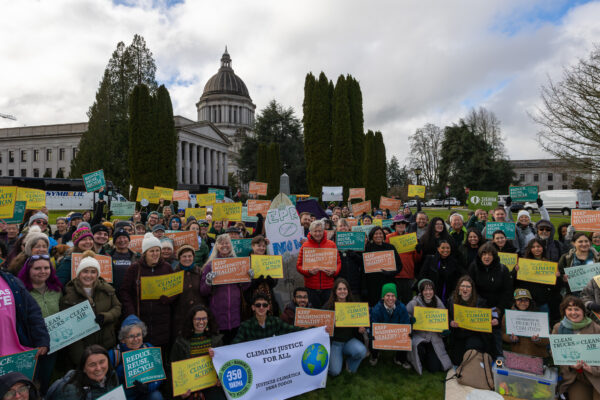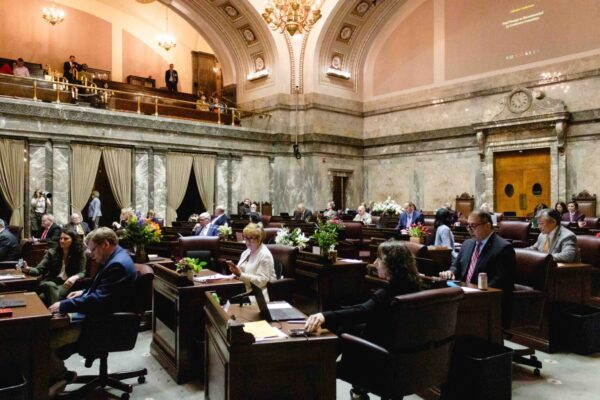“We had measured success with each of the four Priorities this session,” said Clifford Traisman, state lobbyist for Washington Environmental Council and Washington Conservation Voters. “Although some fell short of the original proposal, in all cases they create a good foundation to build for the future.”
“The Governor stepped up big time to address global warming by requesting Climate Action and Green Jobs legislation on the first day of session and then pushing it forward at critical times,” added KC Golden of Climate Solutions. “This bill links strong climate action with a real commitment to expand economic opportunity for all in the green economy. It’s a solid foundation for implementing a comprehensive climate policy across the Western states and provinces in 2009.”
Description of Priorities from ’08 session
Climate Action & Green Jobs (HB2815) – this big win sets responsible limits on climate pollution, sets a path for creating a “green jobs” economy, and reduces miles traveled – a key step given ½ of our global warming pollution comes from cars and trucks.
Local Solutions to Global Warming (SB6580) – this modest win develops tools that will help local governments make land use and zoning decisions that reduce driving and meet the growing demand for green, walkable communities.
Evergreen Cities (HB2844) – this modest win helps retain and replant trees in urban areas to reduce stormwater flooding and pollution as well as increase quality of life.
Local Farms – Healthy Kids (SB6483) – this big win will make Washington a national leader in the local food movement by getting more Washington grown produce into our schools and food banks, thus improving children’s health and creating new and thriving markets for our farmers.
While it is not known what the 2009 Priorities will be, it is anticipated that 2009 will be a big year and the longer session will be a key time for continued work on climate change and Puget Sound protection.
Other environmental bills of note from the 2008 session
Passed:
Children’s Safe Products: ESHB 2647 will eliminate three toxic chemicals, lead, cadmium, and phthalates, from toys and other children’s products. It will also require manufacturers to report whether their products contain other chemicals found to be of a concern for children’s health
Tugs: The legislature budgeted $3.65 million to fund a rescue tug stationed at Neah Bay for the first time on a year-round contract.
Orcas: HB 2514 establishes a 300-foot zone around orca whales to protect them from vessel harassment.
Energy efficiency bills: SHB 2847 passed providing sales and use tax exemptions for low-income weatherization materials and services. SHB 3362 would help small businesses purchase highly energy-efficient equipment
520 Finance Bill: HB 3096 takes important steps in the direction of tolling the SR-520 corridor, including potential tolls on the existing bridge and potential tolling of I-90. This legislation also directs the new 520 bridge to be built with 6 lanes: 4 designated for general traffic and the other 2 for carpooling and transit.
Broad Tolling Policy: HB1773 will help reduce traffic and pollution from the transportation sector by creating a framework for future tolling decisions which may also create revenue for transit alternatives.
Did not pass:
Maury Island protections: SB 6777 would have protected Maury Island from the largest strip mine of its kind in the country.
Hanford Cleanup: the Legislature did not act on PSSB 5393 to protect our State from the impending designation of Hanford as a national radioactive mixed hazardous waste dump.
Energy Efficiency: SHB 2758 would have set efficiency standards for several products sold or installed in Washington. HB 2426, HB 2703, HB 2901 and HB 2888, would have promoted energy-efficient lighting and retrofitting in public buildings.



